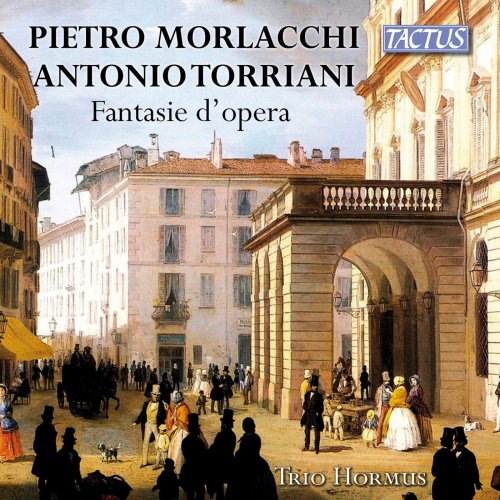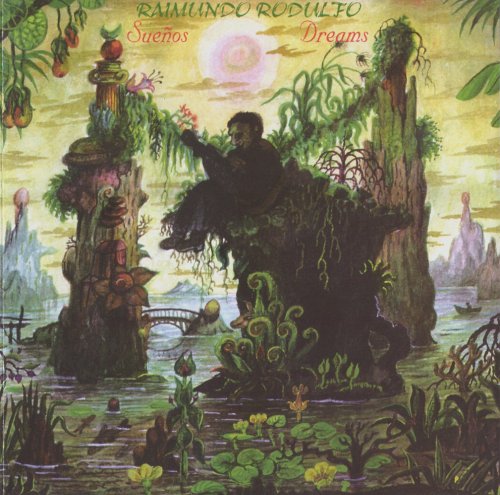Trio Hormus - Operatic Fantasies (2014)

Artist: Trio Hormus
Title: Operatic Fantasies
Year Of Release: 2014
Label: Tactus
Genre: Classical
Quality: FLAC (tracks + booklet)
Total Time: 49:33
Total Size: 194 MB
WebSite: Album Preview
Tracklist:Title: Operatic Fantasies
Year Of Release: 2014
Label: Tactus
Genre: Classical
Quality: FLAC (tracks + booklet)
Total Time: 49:33
Total Size: 194 MB
WebSite: Album Preview
01. Gran fantasia sopra alcuni motivi dell'opera Mose in Egitto di Rossini, Op. 3
02. Duetto sopra pensieri dell'Opera Guglielmo Tell
03. Divertimento on Donizetti's Lucia di Lammermoor
04. Duetto concertato per Flauto e Fagotto con accomp.to di Pianoforte sopra motivi del M. Verdi
The great opera music fantasias (such as the flute one by Pietro Morlacchi on Mosè in Egitto and the bassoon one by Antonio Torriani on Lucia di Lammermoor) were the mainstay of the publishing activity of Francesco Lucca and Tito and Giulio Ricordi in Milan. Non-professional lovers of music ranged, in their mastery of the instruments, from amateurs to concert performers. So the instrumental fantasias were 'moulded' to the patrons’ specific requirements, and nourished a constantly growing market.
When, at the end of the nineteenth century, Lucca’s daughters sold their father’s plates to the Ricordi publishing house, the sum paid by Ricordi for this commercial assimilation was huge for that period: this shows that the market of amateur instrumentalists had become enormous.
So the history of Pietro Morlacchi and Antonio Torriani coincides with the history of the success of the instrumental music genre in Italy. Thanks to the quality and liveliness of their virtuosic style, these two composers’ pieces can still be enjoyed in a concert performance.
In Italy, the composers who reduced operas were almost always instrumentalists, and their patient musical craftsmanship did not separate instrumental mastery from the invention of bravura variations. In other words, composition and virtuosity coexisted and were the backbone of these works. In the catalogues of the nineteenth-century publishers, the only pieces that survived were those that were really significant from a musical point of view: the works by Morlacchi and Torriani belong to this happy minority.
When, at the end of the nineteenth century, Lucca’s daughters sold their father’s plates to the Ricordi publishing house, the sum paid by Ricordi for this commercial assimilation was huge for that period: this shows that the market of amateur instrumentalists had become enormous.
So the history of Pietro Morlacchi and Antonio Torriani coincides with the history of the success of the instrumental music genre in Italy. Thanks to the quality and liveliness of their virtuosic style, these two composers’ pieces can still be enjoyed in a concert performance.
In Italy, the composers who reduced operas were almost always instrumentalists, and their patient musical craftsmanship did not separate instrumental mastery from the invention of bravura variations. In other words, composition and virtuosity coexisted and were the backbone of these works. In the catalogues of the nineteenth-century publishers, the only pieces that survived were those that were really significant from a musical point of view: the works by Morlacchi and Torriani belong to this happy minority.


![Bob James, David Sanborn, Tsuyoshi Yamamoto, Susan Wong, Fourplay - The Best Of Evosound Audiophile (2024) [SACD] Bob James, David Sanborn, Tsuyoshi Yamamoto, Susan Wong, Fourplay - The Best Of Evosound Audiophile (2024) [SACD]](https://www.dibpic.com/uploads/posts/2026-02/1771744987_folder.jpg)





